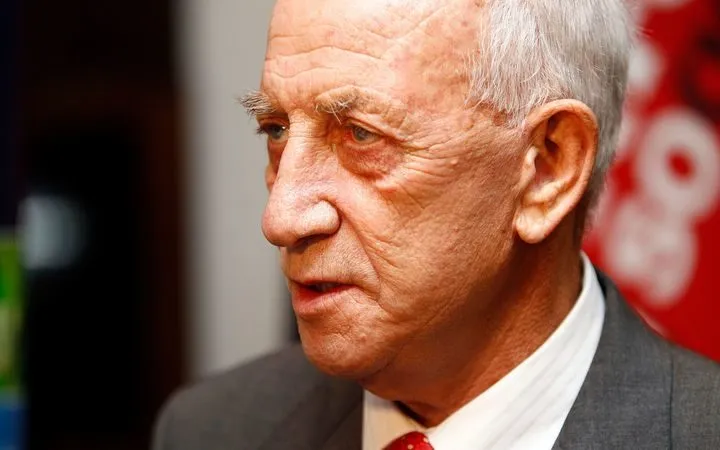Table of Contents
You can all read Sir Bob’s latest musings and thoughts on his No Punches Pulled blog.
Following on from yesterday’s initial excerpt from Sir Bob’s book, New Zealand the way I want it, (1978), please enjoy part two.
The Tale of the Wicked Giant. Part 2.
[…] The people were puzzled. ‘How can we possibly have these things for nothing?’ they asked.
‘That’s easy’, replied the malcontents, ‘let the strongest give them to us and the strongest is Government.’
Now Government, although the biggest and fattest person in New Zealand, was rather a sleepy old giant and wanted nothing more than to be left in peace to guard against dangers unknown so for a time he ignored the demands of the malcontents.
This infuriated them and as they had lots of time, thanks to the hard work of their parents, they decided to make a nuisance of themselves and prod sleepy old Government into action.
So they marched up and down the streets in processions carrying banners proclaiming their natural human rights, which they demanded Government give to them free. When Government continued to ignore them they began to insult him and call him rude names and suggest he was not really the man for the job.
At this suggestion Government pricked up his ears, for he liked his job which was easy and well paid and did not want to lose it. He decided to discuss the matter with the malcontents.
‘If you make me give you schools and hospitals, ‘he said, ‘then I won’t have time to protect the people against dangers unknown.’
The malcontents laughed at this. ‘There are no dangers,’ they replied. ‘You’re just making excuses. When our parents asked you to protect us from dangers unknown they were imagining things, for if the dangers are unknown, how would they have known they exist?’
Because he was not very good at arguing, as were the malcontents, Government decided the only way he would get some peace and quiet would be to do as they demanded so he took over all the schools and hospitals and said, ‘Henceforth they are free.’
But now he had a new problem for he found the duty he was receiving was not enough to keep him in the style to which he was accustomed as well as pay for the schools and hospitals, so he had to double it. The people were very unhappy for this meant their purchases now cost much more than before, even compared with when they were paying for the schools and hospitals themselves.
The reason for this was that even though he meant well, old Government was not very efficient. In fact when it came to running schools and hospitals he was a bit of a bungler, for this was something he was not very good at, protection against dangers unknown being his specialty.
Far from getting the peace and quiet he sought, Government found his life was miserable, for now not only the malcontents but all the people were grumbling. Finally he became fed up and as he was getting on in years, one day he announced he was resigning.
The people talked among themselves and eventually selected a new Government in his place. This Government was young and enthusiastic so for a time he coped with the job of running the schools and hospitals but eventually it proved too much and he too began to get slipshod.
Now the people found the schools and hospitals were not only more expensive than before with the double duty they were paying on their purchases, but as well, they were not as good as when they ran them themselves.
It was here that the malcontents saw their chance. It is not right that you should do all the work, they told Government. What you need are helpers and, having little to do themselves for they did not like ordinary work on the farms and in the towns, they persuaded Government to employ them as his helpers.
This now meant that the schools and hospitals no longer ran themselves as before but were doubly managed, aided by Government’s many helpers. They shifted their homes near to Government’s in a place called the Capital, a word deriving from ‘capitulate’ which is what the people were discovering Government was accidentally doing with some of their freedom.
Government found things much easier with this help and was able to relax again. But not for long. You see once more he discovered that the duty was inadequate for now he had to pay the wages of the malcontents who were his helpers. Furthermore he knew the people would be very angry if he raised the duty again.
For a while Government did not tell the helpers of his problem and to overcome it he borrowed from the people to pay the helpers their wages. Then he had an idea. ‘What you must do’, he told the people, ‘is give me all of your Monday morning’s work to pay for the helpers’ wages.’ This payment, said Government, would be called ‘tax’, being short for the word ‘tactile’ which means connected by a sense of touch and as all children eventually learn, when we say, ‘to touch someone’ we mean to borrow their money with no intention of giving it back again.
To be continued… (as always please feel free to check out Sir Bob’s blog)









